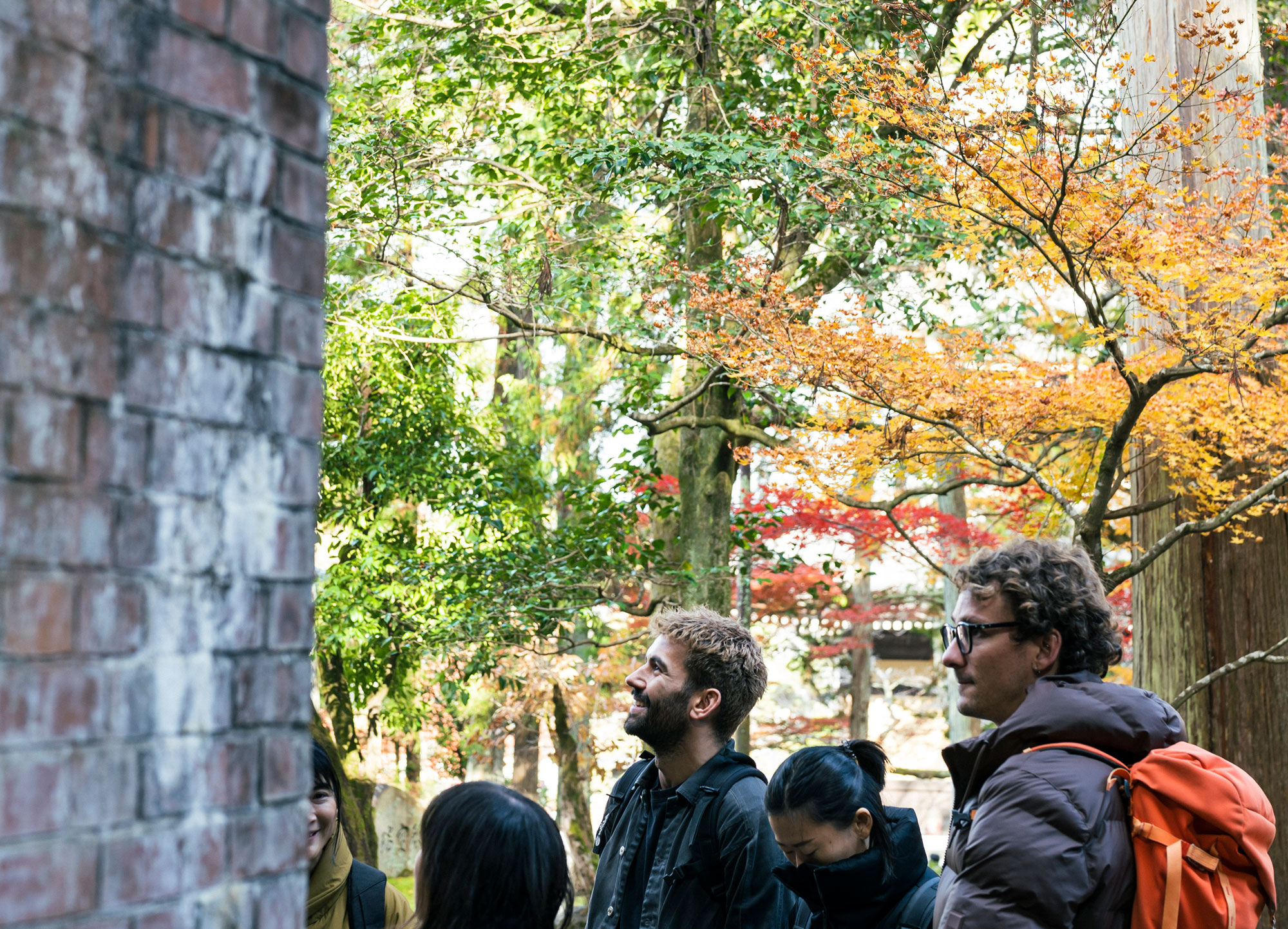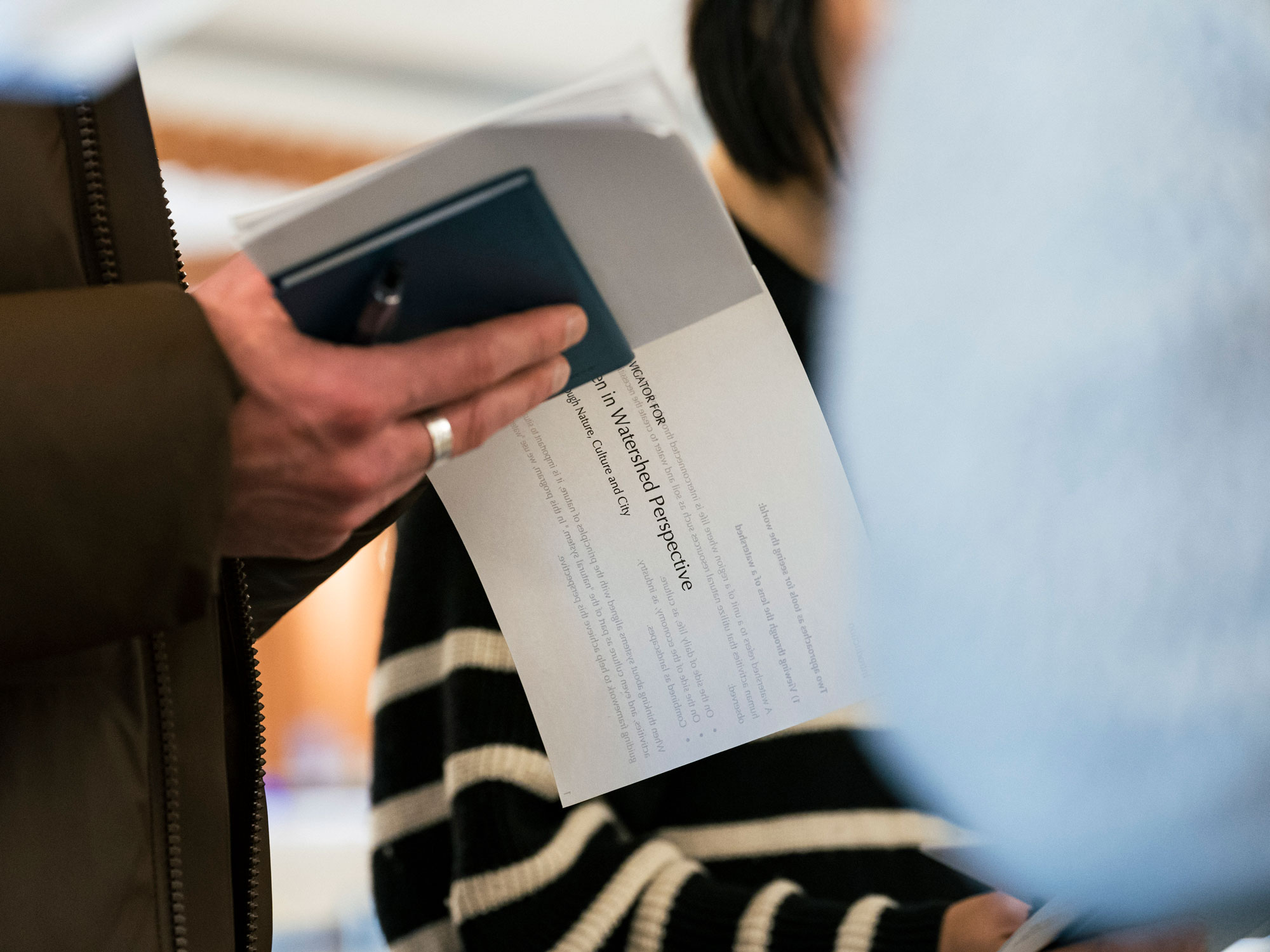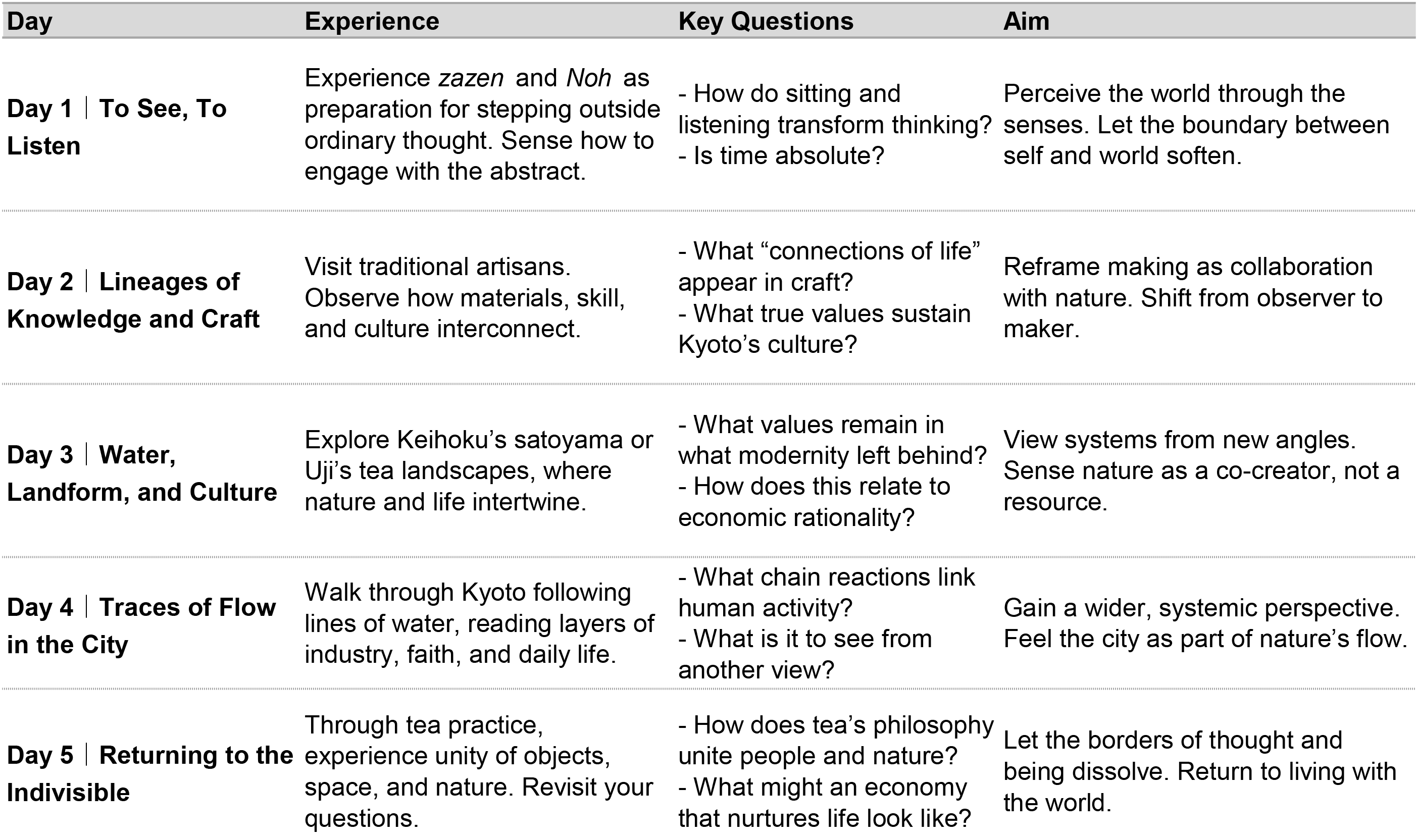
Using water as a guide, this program explores the cultural structures behind Kyoto’s forests, cityscape, and material flows. By engaging with the wisdom of those who have carried forward its craft and cultural traditions, participants are invited to loosen the fixed perspectives of modern society—and cultivate new ways of seeing through a journey only PERSPECTIVE can offer.

The capital of Kyoto has long benefited from the resources of the surrounding watershed, developing a distribution infrastructure that has concentrated wealth and human knowledge, which in turn allowed its culture to flourish.In this program, we travel through the watershed that connects Kyoto’s traditional industries—starting in the downtown streets of Kyoto, up to the mountainous Keihoku area, the source of resources that supported the building of the ancient capital. This journey continues to Uji, a region further south that prospered as a key hub of water and land transportation linking Nara, Kyoto, and Shiga.


This learning program weaves together traces of industry, infrastructure, and social life through guided walks in forests and cities, and through dialogues with practitioners rooted in traditions such as crafts, landscape gardening, tea ceremony, performing arts, Buddhism, and Shinto. Through these experiences, participants begin to recognize their own assumptions and the limits of their perspective, cultivating new ways of seeing that cut across disciplines such as philosophy, history, economics, society, and ecology. By drawing from forms of knowledge born from human inquiry and lived practice—philosophy, history, and anthropology—the program invites participants to question the value systems shaped by modern science and industry. Culture, in this sense, serves as a visible record of alternative ways of understanding the world.


Encounters with our cast of practitioners and embodied, tactile experiences are connected through careful facilitation, designed to foster a deep sense of understanding—one that goes beyond passive observation or superficial consumption. These methods are based on the anthropological approach of ethnography, which we have studied through ongoing collaboration with research institutions. We combine this with the interpretation techniques developed in the fields of environmental education and guiding, and have adapted them into our own original facilitation approach.



"It was a truly rare experience — meeting people I could never have met elsewhere, and visiting places normally out of reach. Over four days, we immersed ourselves in each field site, absorbing everything through all five senses.Because the program is small in scale, participants frequently share impressions and insights, and discussions often expand into possibilities that go beyond our individual organizations.Through these encounters, I became aware of my own fixed ideas and biases toward traditional culture, nature, and the city — and gradually, even my senses became more relative and sharpened.It felt as if my inner sensor had become more sensitive and my lens more finely polished.
I highly recommend looking into the program and experiencing it for yourself — you will certainly come away with many personal discoveries."
"In a time when our environment and society are changing rapidly, this program offered a rare opportunity to reexamine the long traditions of how people relate to one another and to nature — and to question our own daily practices.Welcomed warmly by a diverse range of people — artisans, entrepreneurs, and artists — we gained deep philosophical insights and began to see hidden aspects within our own habits and behaviors.It was an intellectually and emotionally stimulating experience that I would wholeheartedly recommend to anyone seeking to explore what truly connects us and gives our actions lasting meaning."
"From beginning to end, the program was exceptionally well-crafted.The team not only introduced us to Kyoto’s craft culture and its surrounding landscapes from a unique perspective unavailable elsewhere, but also guided us thoughtfully on how these methods could be adapted within our own practices or educational curricula. Every experience was intricately interwoven, making it difficult to single out one moment — all were deeply connected and profoundly enriching."
If you are interested in bringing this program to your university or workplace please apply from the link below.
We will set up a meeting where we can discuss how best to apply this program to your context.